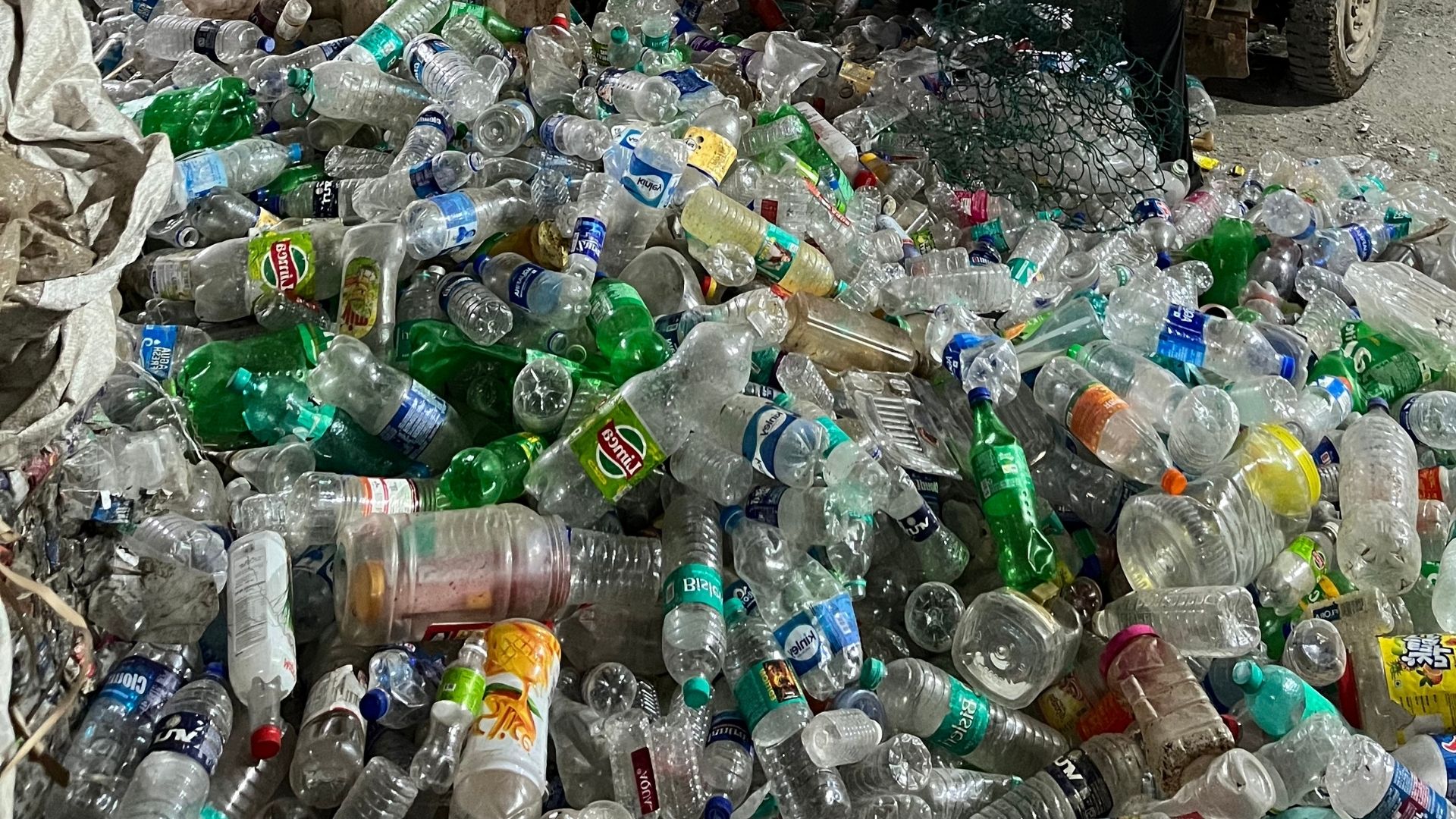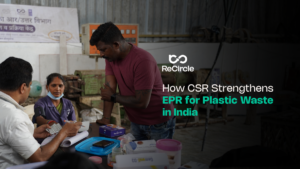In India’s ongoing journey toward sustainable development, Extended Producer Responsibility (EPR) has emerged as a pivotal regulatory mechanism to ensure that businesses bear accountability for the plastic they introduce into the market. The framework mandates producers, importers, and brand owners (PIBOs) to collect, recycle, and manage post-consumer plastic waste in line with their obligations. However, one of the critical challenges many companies face today is delayed EPR registration, which can have significant business, financial, and reputational consequences.
This article delves into the implications of delayed EPR registration on businesses in India, the risks associated with non-compliance, and strategies companies can adopt to safeguard themselves in this increasingly regulated environment.
Understanding the EPR Registration Process
The EPR registration process is designed to bring traceability, accountability, and standardization into plastic waste management. Companies operating in India that manufacture, import, or sell plastic-packaged products are required to register with the Central Pollution Control Board (CPCB) through an online portal. This registration provides the legal foundation to:
- Quantify annual plastic usage.
- Outline waste collection and recycling plans.
- Ensure verifiable documentation of compliance.
- Align with mandatory reporting requirements.
Timely EPR registration is not merely a bureaucratic formality—it is the cornerstone of corporate environmental responsibility and the foundation for maintaining business continuity.
Consequences of Delayed EPR Registration
Delays in completing the EPR registration process can have profound repercussions for businesses, especially as India tightens its sustainability mandates. Below are the key areas of impact:
1. Regulatory Non-Compliance
Failure to register under EPR within stipulated timelines puts companies at risk of being classified as non-compliant entities. This can lead to regulatory actions including:
- Suspension of business licenses.
- Penalties and fines under environmental laws.
- Restrictions on the sale of products packaged in plastic.
2. Financial Liabilities
Delayed EPR registration often translates into backdated compliance obligations. Businesses may be required to retrospectively purchase plastic credits or invest in waste recovery at an accelerated pace, leading to unplanned financial outflows. Furthermore, fines for non-compliance can significantly impact margins.
3. Supply Chain Disruptions
Brands relying on vendors or partners who are not EPR-registered may face disruptions in product distribution. Retailers and distributors increasingly demand proof of EPR compliance to avoid being exposed to regulatory risks themselves.
4. Loss of Market Access
Some state-level regulators and retailers are already enforcing stricter compliance checks. Businesses without timely EPR registration may find themselves locked out of key markets, especially in urban centers where sustainability enforcement is more stringent.
5. Reputational Damage
In an era where consumer preference is shifting towards sustainability, delayed registration signals negligence. This can damage a brand’s reputation, erode customer trust, and weaken competitive positioning.
6. Operational Inefficiency
Without EPR registration, companies lack access to formal reporting systems, verified recyclers, and credible waste management partners. This leads to inefficiencies and missed opportunities to leverage circular economy practices.
Business Risks of Non-Compliance
Delayed registration does not merely create administrative setbacks—it exposes businesses to systemic risks:
- Legal Risk: Companies may face lawsuits or regulatory bans.
- Investor Risk: Non-compliance can deter ESG-conscious investors.
- Operational Risk: Disruptions in packaging procurement due to compliance requirements.
- Strategic Risk: Falling behind competitors who position themselves as sustainability leaders.
In short, businesses that do not prioritize EPR registration risk being left behind in an environment where compliance and sustainability are no longer optional but integral to growth.
Opportunities Lost Due to Delayed Registration
While the risks are significant, delayed registration also results in lost opportunities:
- Plastic Credit Advantage: Businesses miss out on leveraging plastic credits early to balance obligations.
- Circular Partnerships: Companies without registration cannot build formal collaborations with certified recyclers.
- Brand Storytelling: Failure to demonstrate compliance eliminates the chance to engage eco-conscious consumers with transparent sustainability narratives.
The Strategic Importance of Timely EPR Registration
For businesses, EPR registration is not just about avoiding penalties; it is about creating resilience and future readiness. Timely registration allows companies to:
- Align with Global Standards: Many global markets require similar sustainability reporting. Early compliance makes international expansion smoother.
- Enhance Traceability: Businesses gain access to verified data on plastic recovery, aiding ESG reporting.
- Build Consumer Trust: Demonstrating compliance strengthens brand credibility.
- Support Waste Workers: Formal participation in waste management ensures ethical engagement with the informal sector.
Best Practices for Navigating the EPR Registration Process
To minimize risks and maximize benefits, businesses should adopt the following strategies:
- Early Engagement: Begin the EPR registration process well before deadlines to allow for document preparation, audits, and approvals.
- Dedicated Compliance Teams: Assign internal teams or external consultants to monitor obligations and changes in CPCB guidelines.
- Technology Integration: Leverage platforms that provide real-time tracking and transparent documentation.
- Partner with Certified Waste Managers: Collaborate with credible partners who can support recovery, recycling, and reporting.
- Regular Compliance Audits: Conduct periodic reviews to ensure accuracy in reporting and avoid discrepancies.
Partnering with Us: Turning Compliance into Opportunity
At ReCircle, we know that extended producer responsibility (EPR) is more than just a regulatory checkbox—it’s a chance for businesses to lead the way in sustainability. Yet, we also understand the reality: the EPR registration process can feel complex, especially for companies managing multiple product categories and supply chains. That’s why we’ve built solutions designed to simplify, support, and scale.
How We Help You Succeed
Through our ClimaOne platform, we equip our partners with the tools they need to move from confusion to clarity:
- Full visibility into waste recovery through end-to-end traceability.
- Access to a network of certified recyclers across India.
- Plastic credits that make neutrality and compliance achievable.
- Clear, transparent documentation that takes the stress out of reporting.
With us, EPR compliance isn’t just about avoiding penalties—it becomes a lever for building trust, improving efficiency, and unlocking new opportunities.
The Cost of Waiting
We’ve seen too often how delayed EPR registration can create ripple effects: strained supply chains, higher costs, and risks to brand reputation. For us, compliance is not about reacting at the last minute—it’s about preparing businesses for the future, today.
By addressing EPR obligations early and strategically, our partners gain not only regulatory security but also a competitive edge in a market that is demanding greater accountability.
Looking Forward Together
India’s regulatory landscape is evolving quickly, and EPR is at the center of this change. To us, that’s not a challenge—it’s an opportunity to redefine how businesses grow responsibly.
When you choose to partner with ReCircle, you’re not just outsourcing compliance. You’re joining us in building a circular value chain where responsibility, profitability, and sustainability work hand in hand.
Let’s move forward—together.
Future-proof your compliance. Protect your reputation. And unlock the potential of circular business with ReCircle.
FAQs
- What is the timeline for the EPR registration process in India?
Registration timelines vary but generally align with the start of the financial year. Businesses are advised to register as early as possible to avoid bottlenecks and penalties. - How does delayed registration affect small and medium enterprises (SMEs)?
SMEs face heightened risks as they may lack the financial flexibility to absorb penalties or rushed compliance costs. Early registration helps SMEs build resilience. - Can companies operate without EPR registration?
No. Operating without registration is a violation of CPCB guidelines and can result in suspension of operations, fines, and reputational damage. - What role do plastic credits play in delayed compliance?
Plastic credits can help companies bridge compliance gaps, but they cannot replace the need for timely EPR registration. Credits are effective only when used alongside verified recovery. - How can businesses ensure accuracy in their EPR reporting?
By partnering with certified waste management platforms like ReCircle, businesses can ensure full traceability, accurate reporting, and transparent compliance documentation.




